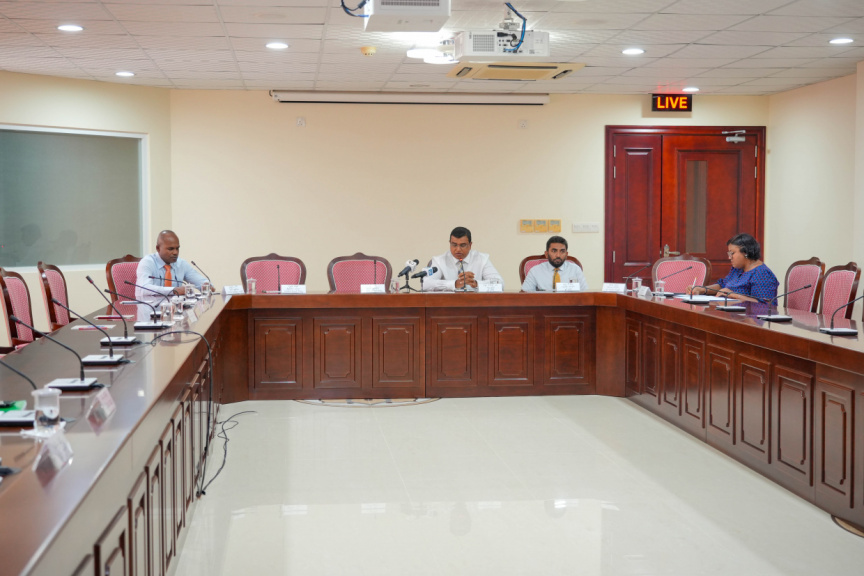
Representatives from political parties attend Parliament's Independent Institutions Committee meeting on July 22, 2025. (Photo/People's Majlis)
Political parties have urged Parliament to include a limit on the number of referendums that can be held in a single year in the Public Referendums Bill, citing the high costs associated with holding referendums.
The government-backed bill on public referendums sponsored by PNC’s parliamentary group leader, Inguraidhoo MP Ibrahim Falah is aimed at clearly defining the conditions under which referendums can be held, as well as to specify the responsibilities of the relevant authorities, including the Elections Commission (EC).
The Parliament’s Independent Institutions Committee, currently reviewing the Public Referendums Bill, met with Elections Commission officials on Monday to seek their views on the matter. On Tuesday, the Committee held discussions with representatives from political parties; however, the two main opposition parties—the Maldivian Democratic Party (MDP) and the People’s National Front (PNF)—did not attend the meeting.
Speaking during the meeting, Jumhoory Party (JP)’s deputy leader Dr. Ameen Ibrahim highlighted the high costs that will be incurred to make arrangements to hold a referendum. Citing Maldivian economy is heavily reliant on tourism, he underscored the potential impact global developments could have on the country’s economic stability.

Nevertheless, he cited the possibility of the Parliament working towards a referendum at any given time based on the composition of the legislative assembly at that particular time. However, not every such occasion would be appropriate to hold a referendum, for instance, in consideration of the economic state of the country.
Maldives National Party (MNDP)’s legal advisor Fathimath Shareef who presented the party’s opinion regarding the bill underscored the need to consider the economic and financial impact a referendum would if have in a scenario the bill is passed.
Agreeing with Ameen, Fathimath said there will be negative impact on economy if four to five referendums are held in a year. As such she proposed to include a limit on how many referendums can be held.
“For example, there is a timeframe stating referendum should be held within a minimum of 45 days and a maximum of 90 days from the date it has been proposed. Hence, why don’t we limit referendums per year to two or three?” she detailed.
Speaking during Monday’s Committee meeting regarding the matter, EC’s President Mohamed Zahid said adequate time will be required to prepare for any election, especially to familiarize the public and disseminate information. He added that whether it is a parliamentary or local council election, if the law sets a specific timeframe for holding the election, it allows sufficient time to prepare in advance.
Zahid proposed extending the timeframe for holding a referendum to align it with the period granted for other elections: a minimum of 45 days and a maximum of 120 days.
The current Elections Commission Act does not allow referendums on issues stipulated under the new Public Referendum bill.
Public referendums can be held to determine the following under the bill.